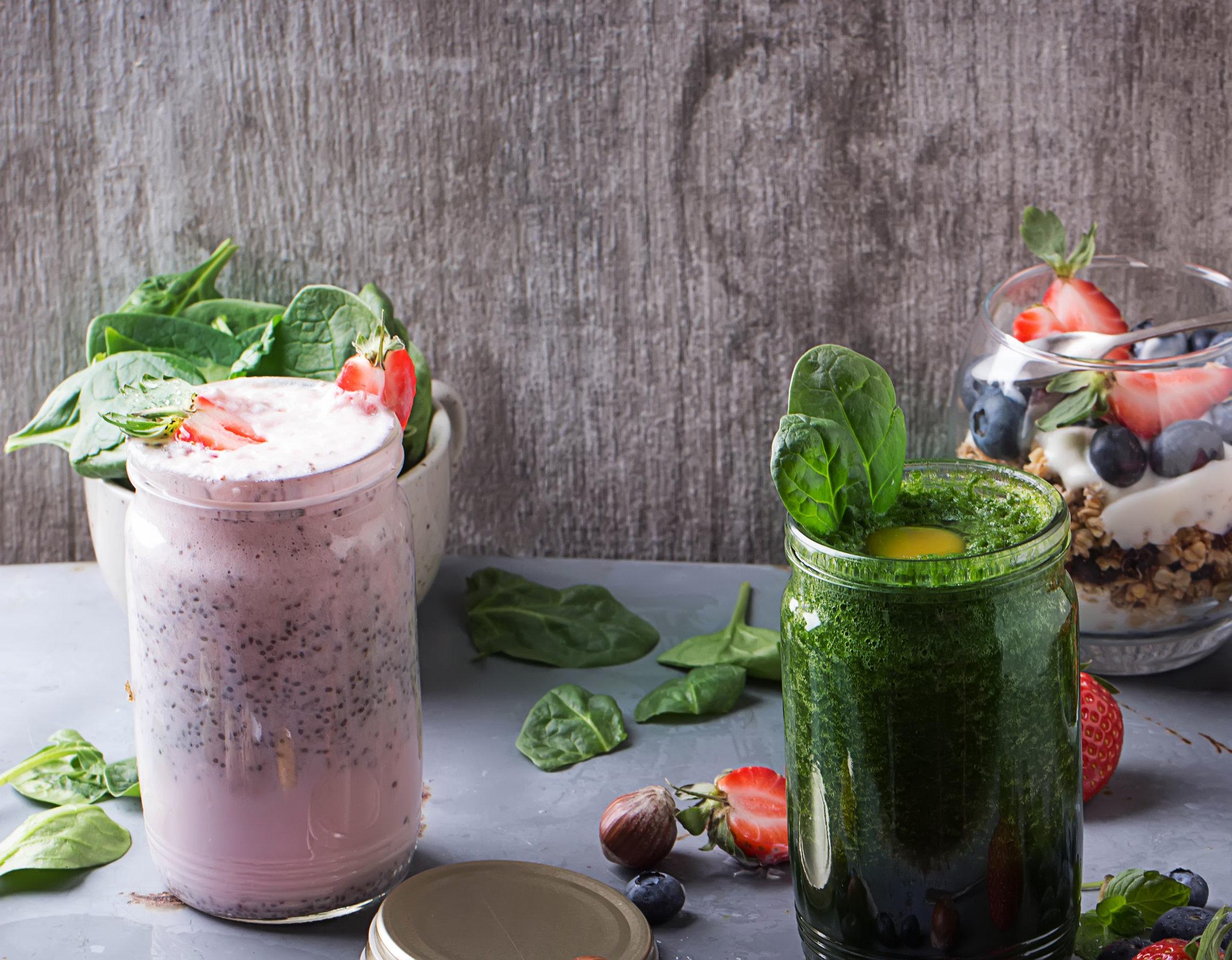”New Mexico, is nutrition one of your recovery strategies for workouts? This week's article gives several suggestions for post-workout nutrition. We hope this helps you recover for your next workout!
Reading time: 4 Minutes
MWi Hack:
- Discover how to eat post-workout and help to improve your recovery
MWi Summary:
- It is ideal to eat 15-30 minutes to replenish energy stores after a workout.
- Post-workout snacks that have a substantial amount of protein include Greek yogurt, cottage cheese, kefir, and eggs.
- Sources of omega-3 fatty acids such as fatty fish have been shown to reduce muscle soreness.
- Carbohydrates, such as sweet potatoes, grains, and fruits, can help promote glycogen storage post-workout.
- It is important to drink plenty of water before, during, and after exercise to help optimize performance and recovery.
What should you eat after working out?
Physical activity uses a lot of energy. It is difficult for the body to recover if energy levels are not replenished within 15 to 30 minutes after finishing a workout. Eating even a little snack shortly after exercising can help to restore energy levels.
In this article, we explore several components of a healthful post-workout snack and describe how they benefit the body.
Dairy protein
According to research published in 2017, as few as 9 grams (g) of milk protein may be enough to stimulate protein synthesis in the muscles, aiding in recovery after exercise.
Other than milk, dairy products rich in protein include:
- Greek yogurt
- ricotta cheese
- cottage cheese
- kefir
In fact, a 1 cup serving of low-fat kefir contains 9.2 g of high-quality protein. These proteins can repair new cells, especially those in the muscles. These proteins also contain all of the essential amino acids, which are only available through the diet.
In 2007, some researchers found that milk-based proteins are more effective than soy-based proteins at promoting the growth of muscle proteins after resistance exercise.
The researchers concluded that while both milk and soy proteins help a person to maintain and build muscle mass, milk proteins were more effective at supporting the quick growth of lean muscle mass.
Eggs
Results of a study from 2017 suggested that consuming whole eggs after resistance exercise resulted in more protein synthesis than consuming egg whites with the same protein content.
The researchers concluded that the nutrients in the yolk helped to stimulate the muscles more effectively.
Omega-3 fatty acids
Research from the Washington University School of Medicine suggests that supplementation with omega-3 fatty acids helps to boost the synthesis of muscle proteins and increase the size of muscle cells in healthy young and middle-aged adults.
Fatty fish, including salmon, are rich in omega-3 fatty acids. Tuna also contains high levels of the fatty acids, and about 6 ounces (oz) of tuna packed in water contains 41.6 g of protein and 5.4 g of fat.
Other evidence shows that oil drawn from fatty fish may help to reduce muscle soreness after resistance training. A study from 2016 found that consuming 6 g of fish oil every day for 1 week before beginning resistance exercise resulted in reduced muscle soreness.
Carbohydrates
Consuming carbohydrate-rich foods may be the best way to reduce the decreases in immunity that can occur after exercise.
Consuming carbohydrates as part of a post-workout snack also helps to promote glycogen storage.
Sweet potatoes, grains, and fruits can contain high levels of healthful carbohydrates, as can quinoa.
Quinoa is gluten-free, classified as a pseudocereal, and usually consumed as a grain. It is high in fiber and rich in protein, with 1 cup providing 8.14 g.
Also, quinoa has a low glycemic index, making it an excellent choice for people who regulate their blood sugar.
Herbal tea
The nutrients and chemical compounds in herbal teas, especially yerba mate, may help the body process carbohydrates and protein effectively.
Authors of a study from 2016 compared the effects of yerba mate to water after exercise. The participants who drank yerba mate recovered strength faster in the 24 hours that followed a workout.
In 2012, researchers found that mice administered yerba mate extract were able to metabolize more quickly and expend more energy than those who did not.
Water
It is essential to drink plenty of water before, during, and after a workout. Staying hydrated ensures that the body gets the most benefit from exercise.
The body loses water and electrolytes while sweating, so drinking water during and after a workout promotes performance and recovery.
Everybody varies in the amount of water they need, depending on the type of exercise, how much they sweat, how thirsty they are, as well as other factors.
The importance of the post-workout snack
During exercise, the muscles use up stored glucose, called glycogen, and levels become depleted.
Endurance sports, such as running, use up more glycogen than resistance activities, such as weightlifting. Another effect of exercise is that the muscles develop small tears.
Getting the right nutritional balance after exercise restores energy levels and reduces fatigue, helping the body to repair muscles and build strength for future workouts.
Proteins, carbohydrates, and healthful fats are all essential for the body’s recovery.
Protein
Exercise supports muscle growth, but the body can only build upon existing muscles if they recover after each workout.
Consuming protein after exercise helps the muscles to heal and prevents the loss of lean mass. Lean mass contributes to a muscular and toned appearance.
Carbohydrates
Carbohydrates are macronutrients that help the body to recharge and restore its fuel supply.
Anyone who exercises more than seven times a week should consume plenty of carbohydrates, as they quickly replenish glycogen levels.
What about fat?
Many people believe that consuming fat after exercising slows digestion and the absorption of nutrients. For some types of fat, this may be true.
However, there is little information about the post-workout effects of fat calories. It may be a good idea to limit fat intake after exercise, but low levels of fat are unlikely to inhibit recovery.
Takeaway
Consuming carbohydrates, proteins, and some fats after exercising helps to encourage muscle protein production, and promote recovery with the best results.
Arrange to eat a snack as soon as possible after a workout. Also, remember to replace fluids and electrolytes by drinking water before, during, and after exercise.
MWi would like to thank Lana Barhum for sharing her expert insights with our community. Read the original article:






